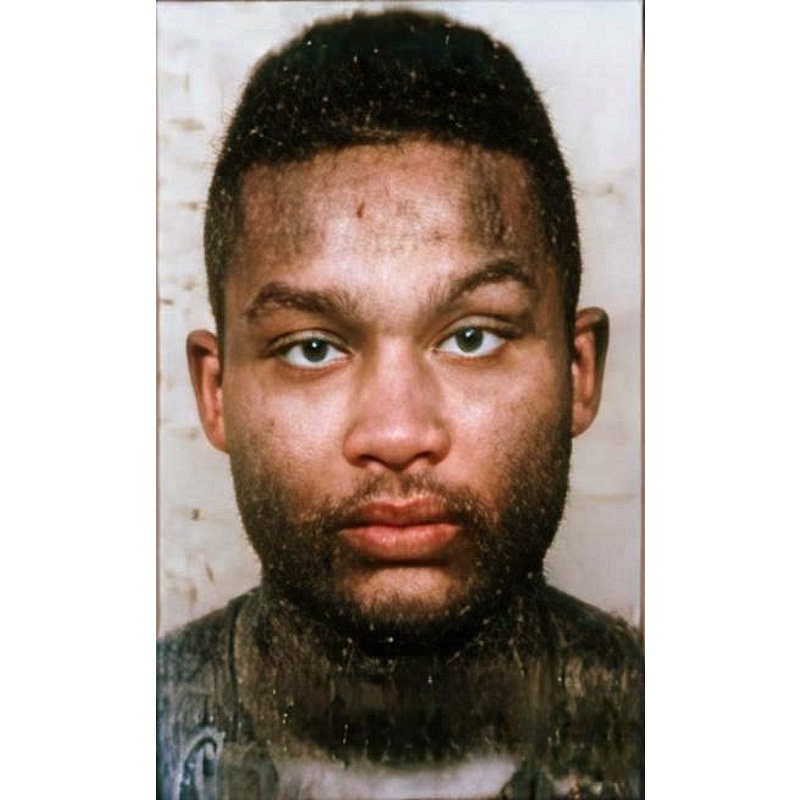ERIC DAWON MATTHEWS | Serial Killer and Rapist Who Killed His Ex-Girlfriends, Wife, and Stepson | Admitted to Smothering 18-Month-Old Son, Stuffing His Tiny Body in a Gym Bag, and Pitching Him in a Trash Bin | ALS
LongfellowSerenade 29
Eric Dawon Matthews, born on May 3, 1974, in Indianapolis, Indiana, is an American serial killer and rapist. In 1994, he murdered two ex-girlfriends in Indiana. Four years later, in 1998, he killed his wife and stepson in Louisiana. During his time evading capture, Matthews was also linked to two separate rape cases. He was arrested on May 20, 1998, and after a protracted legal process, was convicted on four counts of murder, receiving two life sentences without the possibility of parole. As of February 2025, Matthews remains incarcerated, with no indication of participation in rehabilitation programs. His crimes have had a profound impact on the victims' families and communities, underscoring the need for effective mental health interventions and robust protective measures against domestic violence.
… he admitted smothering her 18-month-old son, stuffing his tiny body in a gym bag and pitching him in a trash bin.
$30.00
- Postage
-
Standard Shipping
$0.00 to United States
Get Additional Rates
- Select Country
- Zip/Post Code
- Quantity
Description
The Tragic Descent of Eric Dawon Matthews: From Troubled Youth to Convicted Killer
Born on May 3, 1974, in Indianapolis, Indiana, Eric Dawon Matthews' early life was marred by trauma and instability. At the tender age of three, he suffered sexual abuse at the hands of an uncle, an event that cast a long shadow over his formative years. This early violation seemed to set off a chain of behavioral issues, leading to frequent run-ins with law enforcement for minor offenses during his childhood.
Recognizing his escalating troubles, authorities placed Matthews in various mental health institutions across Michigan, Chicago, and Arizona starting at the age of nine. However, these interventions did little to curb his violent tendencies. At ten, he was convicted of raping a 35-year-old staff member at one of the facilities. Despite this grave offense, Matthews was eventually released and returned to Indianapolis, where he completed his education at Lawrence Central High School. Peers and acquaintances described him as a charismatic yet volatile individual, capable of forming relationships with women despite his underlying aggression.
Matthews' descent into violent crime began in 1994. In Indiana, he brutally murdered two of his ex-girlfriends, though specific details about these crimes remain sparse. Fleeing the repercussions, he relocated to Louisiana, where his violent streak escalated. In 1998, he committed the heinous murders of his wife and stepson. During his time evading capture, Matthews was also linked to two separate rape cases, further highlighting his escalating pattern of sexual violence.
The law eventually caught up with Matthews on May 20, 1998, when he was apprehended by authorities. Following a protracted legal process, he stood trial and was convicted on four counts of murder. The court handed down two life sentences, ensuring he would spend the remainder of his days behind bars. In the years following his conviction, Matthews sought post-conviction relief. Notably, on May 6, 2024, a district court addressed his applications, overruling the state's objections. However, the specifics of these legal maneuvers and their outcomes remain complex and are subject to ongoing legal scrutiny.
The ripple effects of Matthews' crimes were profound. Four lives were brutally cut short, leaving families and communities in mourning. The psychological scars inflicted on the victims' loved ones are immeasurable. Media coverage at the time sensationalized the events, leading to widespread public outrage. While there is no clear evidence that Matthews' actions directly resulted in legislative changes, his case underscored the pressing need for improved mental health interventions and more robust protective measures for potential victims of domestic violence.
As of February 2025, Eric Dawon Matthews remains incarcerated, serving his life sentences without the possibility of parole. There is no public record indicating his participation in rehabilitation programs, and given the severity of his offenses, he continues to be regarded as a potential threat to society.
The tragic trajectory of Matthews' life offers a somber reflection on the interplay between early childhood trauma and subsequent violent behavior. It emphasizes the critical importance of timely and effective mental health interventions, as well as the necessity for vigilant protective measures for those at risk of domestic abuse.
Given the notoriety of his crimes and his current incarcerated status, any autographed items bearing Matthews' signature would be exceedingly rare. Such items could hold significant value for collectors specializing in criminal memorabilia, though ethical considerations surrounding the commodification of such artifacts remain a topic of debate.
Archiving Protocol:
• Handled with White Gloves ab initio
• Photo Pages/Sheet Protectors: Heavyweight Clear Sheet Protectors, Acid Free & Archival Safe, 8.5 × 11, Top Load
• White Backing Board – Acid Free
Shipping/Packaging: Rigid Mailer 9.5 × 12.5. White, self-seal, stay-flat, Kraft cardboard, no bend. Each rigid mailer is made of heavy cardboard, which has strong resistance to bending and tearing. Thicker than the USPS mailers. Shipping cost never more than it absolutely has to be to get it from me to you.
Payments & Returns
- Payment Methods
- PayPal, Money Order
Postage & Shipping
- Item Location
- 49858, Michigan, United States
- Ships To
- Worldwide
- Pick-ups
- No pick-ups
- Shipping Instructions
- Shipping costs to international destinations will be applied to this auction. Please contact us if you have any questions about shipping to your location.
- Returns Accepted
- No




-800x800.jpg)

-500x500.jpg)


